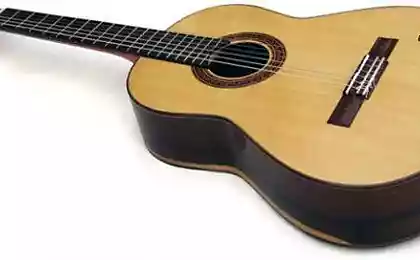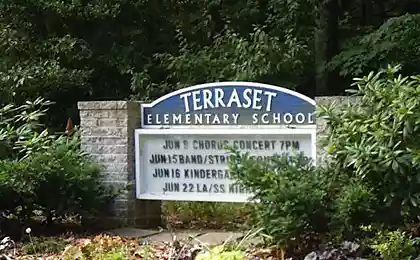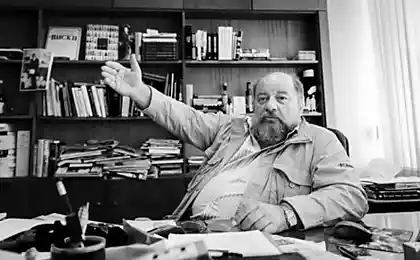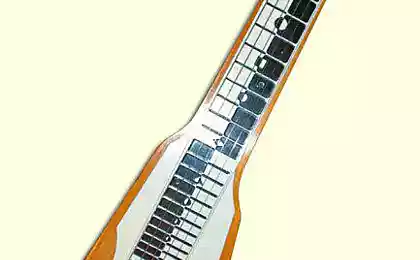617
Why you do not need to force children to go to music school and dancing
The parents of the trainee in the service station bragging about a child is much less likely than the parents of the little violinist. But hardly someone doubts the skill more likely to be useful in the future. Mark Oppenheimer in his column talks about why studying music is a waste of time.
Our daughter Rebecca is a student in the second grade and goes to three additional classes every week. Monday — violin, on Wednesday, Hebrew on Thursday — ballet. One of these classes connects her to a religious tradition that goes back three thousand years. Two other quite meaningless.
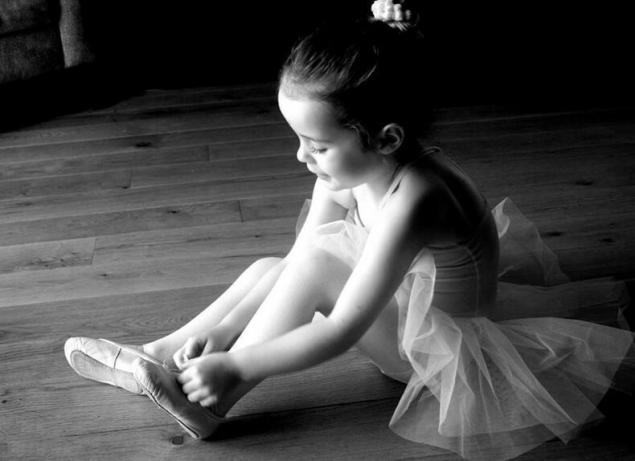
And I don't want to say it's bad. Most of our activities does not carry some special meaning — they are just like us. For example, my habit annually to review "dazed and confused" (Richard Linklater, 1993 — Approx. ed.) is absolutely meaningless.
But a hobby is so good that they just bring the fun. Rebecca likes to play violin and ballet in new gavanskoe music school. She likes school, the teachers, and she is proud when she has something. As for me, this is enough.
Not all parents will agree with me. There are those who never tires of talking about how useful the lessons of music and dancing.
Why music lessons and dance is still so popular
I asked a lot of questions about their friends parents. About the dance they say that he "teaches security" or "raising grace". About the violin or piano is that it "gives them useful skills for life" and "developing musical taste".
No need to have a highly developed mind to notice the weaknesses of these assertions. I have no doubt that familiar with the dance of a man can be determined by some "signal" movements: the habit of standing in the first position or elegance in a jump during a game of Frisbee. And maybe one or two of the best student of the ballet class actually will seem more graceful than others.
The majority of pupils who a few years for an hour a week spent in ballet class, does not stand out among peers
If you don't believe me, then please visit the high school and try watching the kids at lunch to determine who of them took ballet.
As for musical skills "for life", I propose a simple test. Go to Facebook and ask to respond those friends who in their childhood have five or more years devoted to the game on any musical instrument. Then ask them when they last took it in hand.
I tried to conduct such a survey at a recent dinner with friends. Out of ten adults I was the only one who didn't go to musical school in my childhood. And they all admitted that they gave up music shortly after high school. Whatever it was — violin, piano, saxophone — all were left to gather dust in the attic in the family home or was put up for sale.
These people listen to the wrong music, which they were taught. Lessons on the cello did not make them fans of Bach. And something I have not seen that in textbooks on the violin was songs Muse.
Where did the tradition of teaching children music
The tradition of teaching children music and dance historically — for this had their reasons. If we consider these reasons carefully, we realize that we continue to impose on their children the lessons that have long ceased to be relevant.
To the XX century music sounded in the house, only if someone from the family members could play or sing. Then playing the violin, piano and even the mandolin really made sense. And before urbanization and the development of transport most people could not regularly attend concerts. Music could become a part of everyday life only as an Amateur.
But there were other, more complex reasons: the ability to play the piano spoke about a specific social situation. The pianos are handmade from the XVIII century was a mandatory element of the interior living rooms of the aristocracy, but 1850-1860 years in Germany, the US and the UK began factory production, and the piano became a status symbol for the middle class.
Helped by changes in the financial sector: the emergence of installment allowed to buy a piano and very poor people. The price of the instrument, more and more fell, and music lessons gradually became a compulsory element of the education of every girl and continued be considered a symbol of "decent" origin.
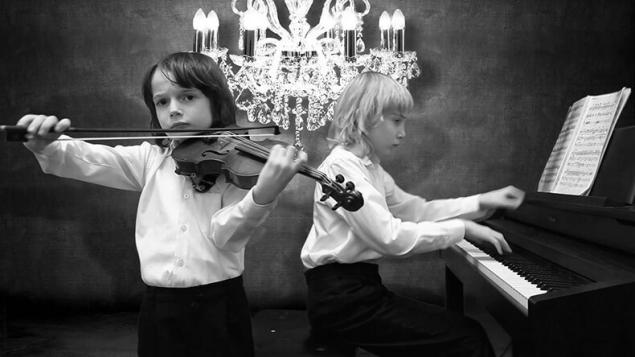
Why music lessons as useful as the classes table football
In music lessons there is nothing wrong. The study of music or dance for a long time develops a sense of purpose and fosters confidence. But the same thing can be said about the long learning anything.
No special dignity in the ability to play the violin, unless you have a special gift
Otherwise, the same valuable lessons you will receive from karate, and badminton. And even from the endless hours spent playing table football.
It is clear that if no one ever studied ballet and violin, we wouldn't have professional orchestras and ballet companies. It would be a great loss. But such arts should be taught the most eager and gifted students, persistent and constant in his enthusiasm.
As a music education discourages creativity
I'm not saying that students should stop going to extra classes (although sometimes, when I see how overwhelmed some children, this is exactly what I mean). We just need to record them on the mugs that will have more sense, given that this is 2016, not 1860. And what we don't want a daughter playing the violin to confirm your status.
I understand that although I like the Concerto for violin and orchestra Mendelssohn, Rebecca it would be better to learn how to play Lumineers "Ho Hey" on guitar. At least this will help her become popular at summer camp.
If I had to pick a tool that's better guitar
We all agree that children (and their parents) it is useful to try new activities, and that there is a benefit in mastering difficult disciplines. So, maybe try something other than classical music? The sublimity of art is tied up, in the end, its unnecessary.
Most of all, I want my children found the sessions useful or very useful to them in adult life
How about a car repair or sewing? And if you still choose the tool, I again, rather would suggest the guitar. My friends adults who learned to play the guitar, it is still possible to beg them to perform a couple of songs.
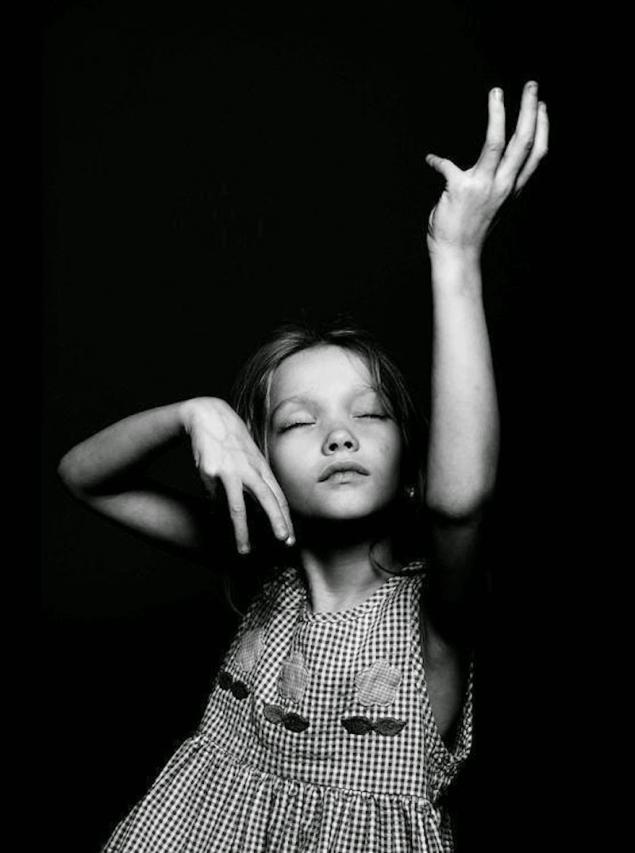
How to cope with anger and nervousness children: effective methods of Maria Montessori, These words— the worst curse a parent
My daughter Rebecca, meanwhile, continues to do ballet and violin. Periodically, we ask her if she wants to quit and she always says no. We think it's good. If she will find this their calling, that would be great.
But if one evening the usual hours for training, she decides that she's had enough, maybe I'll offer her the guitar. Or simply ask: if she wants to sit with me on the sofa and watch "dazed and confused"? published
Source: vk.com/clubnnr?w=wall-217795_76805
Our daughter Rebecca is a student in the second grade and goes to three additional classes every week. Monday — violin, on Wednesday, Hebrew on Thursday — ballet. One of these classes connects her to a religious tradition that goes back three thousand years. Two other quite meaningless.

And I don't want to say it's bad. Most of our activities does not carry some special meaning — they are just like us. For example, my habit annually to review "dazed and confused" (Richard Linklater, 1993 — Approx. ed.) is absolutely meaningless.
But a hobby is so good that they just bring the fun. Rebecca likes to play violin and ballet in new gavanskoe music school. She likes school, the teachers, and she is proud when she has something. As for me, this is enough.
Not all parents will agree with me. There are those who never tires of talking about how useful the lessons of music and dancing.
Why music lessons and dance is still so popular
I asked a lot of questions about their friends parents. About the dance they say that he "teaches security" or "raising grace". About the violin or piano is that it "gives them useful skills for life" and "developing musical taste".
No need to have a highly developed mind to notice the weaknesses of these assertions. I have no doubt that familiar with the dance of a man can be determined by some "signal" movements: the habit of standing in the first position or elegance in a jump during a game of Frisbee. And maybe one or two of the best student of the ballet class actually will seem more graceful than others.
The majority of pupils who a few years for an hour a week spent in ballet class, does not stand out among peers
If you don't believe me, then please visit the high school and try watching the kids at lunch to determine who of them took ballet.
As for musical skills "for life", I propose a simple test. Go to Facebook and ask to respond those friends who in their childhood have five or more years devoted to the game on any musical instrument. Then ask them when they last took it in hand.
I tried to conduct such a survey at a recent dinner with friends. Out of ten adults I was the only one who didn't go to musical school in my childhood. And they all admitted that they gave up music shortly after high school. Whatever it was — violin, piano, saxophone — all were left to gather dust in the attic in the family home or was put up for sale.
These people listen to the wrong music, which they were taught. Lessons on the cello did not make them fans of Bach. And something I have not seen that in textbooks on the violin was songs Muse.
Where did the tradition of teaching children music
The tradition of teaching children music and dance historically — for this had their reasons. If we consider these reasons carefully, we realize that we continue to impose on their children the lessons that have long ceased to be relevant.
To the XX century music sounded in the house, only if someone from the family members could play or sing. Then playing the violin, piano and even the mandolin really made sense. And before urbanization and the development of transport most people could not regularly attend concerts. Music could become a part of everyday life only as an Amateur.
But there were other, more complex reasons: the ability to play the piano spoke about a specific social situation. The pianos are handmade from the XVIII century was a mandatory element of the interior living rooms of the aristocracy, but 1850-1860 years in Germany, the US and the UK began factory production, and the piano became a status symbol for the middle class.
Helped by changes in the financial sector: the emergence of installment allowed to buy a piano and very poor people. The price of the instrument, more and more fell, and music lessons gradually became a compulsory element of the education of every girl and continued be considered a symbol of "decent" origin.

Why music lessons as useful as the classes table football
In music lessons there is nothing wrong. The study of music or dance for a long time develops a sense of purpose and fosters confidence. But the same thing can be said about the long learning anything.
No special dignity in the ability to play the violin, unless you have a special gift
Otherwise, the same valuable lessons you will receive from karate, and badminton. And even from the endless hours spent playing table football.
It is clear that if no one ever studied ballet and violin, we wouldn't have professional orchestras and ballet companies. It would be a great loss. But such arts should be taught the most eager and gifted students, persistent and constant in his enthusiasm.
As a music education discourages creativity
I'm not saying that students should stop going to extra classes (although sometimes, when I see how overwhelmed some children, this is exactly what I mean). We just need to record them on the mugs that will have more sense, given that this is 2016, not 1860. And what we don't want a daughter playing the violin to confirm your status.
I understand that although I like the Concerto for violin and orchestra Mendelssohn, Rebecca it would be better to learn how to play Lumineers "Ho Hey" on guitar. At least this will help her become popular at summer camp.
If I had to pick a tool that's better guitar
We all agree that children (and their parents) it is useful to try new activities, and that there is a benefit in mastering difficult disciplines. So, maybe try something other than classical music? The sublimity of art is tied up, in the end, its unnecessary.
Most of all, I want my children found the sessions useful or very useful to them in adult life
How about a car repair or sewing? And if you still choose the tool, I again, rather would suggest the guitar. My friends adults who learned to play the guitar, it is still possible to beg them to perform a couple of songs.

How to cope with anger and nervousness children: effective methods of Maria Montessori, These words— the worst curse a parent
My daughter Rebecca, meanwhile, continues to do ballet and violin. Periodically, we ask her if she wants to quit and she always says no. We think it's good. If she will find this their calling, that would be great.
But if one evening the usual hours for training, she decides that she's had enough, maybe I'll offer her the guitar. Or simply ask: if she wants to sit with me on the sofa and watch "dazed and confused"? published
Source: vk.com/clubnnr?w=wall-217795_76805
